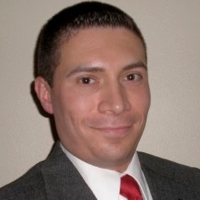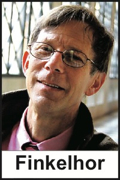Rascals case in brief
In the beginning, in 1989, more than 90 children at the Little Rascals Day Care Center in Edenton, North Carolina, accused a total of 20 adults with 429 instances of sexual abuse over a three-year period. It may have all begun with one parent’s complaint about punishment given her child.
Among the alleged perpetrators: the sheriff and mayor. But prosecutors would charge only Robin Byrum, Darlene Harris, Elizabeth “Betsy” Kelly, Robert “Bob” Kelly, Willard Scott Privott, Shelley Stone and Dawn Wilson – the Edenton 7.
Along with sodomy and beatings, allegations included a baby killed with a handgun, a child being hung upside down from a tree and being set on fire and countless other fantastic incidents involving spaceships, hot air balloons, pirate ships and trained sharks.
By the time prosecutors dropped the last charges in 1997, Little Rascals had become North Carolina’s longest and most costly criminal trial. Prosecutors kept defendants jailed in hopes at least one would turn against their supposed co-conspirators. Remarkably, none did. Another shameful record: Five defendants had to wait longer to face their accusers in court than anyone else in North Carolina history.
Between 1991 and 1997, Ofra Bikel produced three extraordinary episodes on the Little Rascals case for the PBS series “Frontline.” Although “Innocence Lost” did not deter prosecutors, it exposed their tactics and fostered nationwide skepticism and dismay.
With each passing year, the absurdity of the Little Rascals charges has become more obvious. But no admission of error has ever come from prosecutors, police, interviewers or parents. This site is devoted to the issues raised by this case.
On Facebook
Click for earlier Facebook posts archived on this site
Click to go to
Today’s random selection from the Little Rascals Day Care archives….
Click for earlier Facebook posts archived on this site
Click to go to
Today’s random selection from the Little Rascals Day Care archives….
Nancy Lamb goes mum but ‘has the most to answer for’
March 7, 2012
“The one voice we most want to hear is that of Assistant District Attorney Nancy Lamb, who went after the Little Rascals defendants with the righteousness of an avenging angel.
“In refusing to speak with ‘Frontline,’ Lamb’s silence is devastating. She has the most to answer for.”
– Michael Blowen of the Boston Globe, reviewing “Innocence Lost: The Verdict”
Assistant attorney general complains: ‘Innocence is in vogue now’

linkedin.com
Jess Mekeel
Aug. 11, 2016
“[North Carolina] Assistant Attorney General Jess Mekeel said [Johnny] Small’s motion should be dismissed.
“ ‘Innocence is in vogue now,’ he told the judge, the Associated Press reported.
“Exonerations are certainly on the rise. Last year, about 150 people were exonerated, a record number, according to the National Registry of Exonerations….
“Mekeel [said] he considers reopening cases based on recanted testimony to be a threat to the American legal system.
“ ‘This is an attempt to retry a 28-year-old case. Twelve jurors made that determination already. They heard the evidence. They concluded the defendant was guilty,’ Mekeel said, according to WRAL. ‘They jeopardize the stability and reliability of our justice system.’ ”
– From “Man spent 28 years in prison after his friend accused him of murder. Now, the friend said he lied” by Travis M. Andrews in the Washington Post (Aug. 9)
“Innocence is in vogue now” – what a revealing glimpse of the inner prosecutor! As if exonerations were a fad, an unwarranted threat to “the stability and reliability of our justice system.”
Is it any wonder that district attorneys such as Jon David so eagerly pursue innocence advocates such as Chris Mumma?
![]()
What? No Little Rascals on Edenton’s Wiki page?
 Sept. 12, 2014
Sept. 12, 2014
Edenton has been the scene of many historic events – the Edenton Tea Party, the escape of Harriet Jacobs, etc. – but surely nothing happened there in the entire 20th Century more significant than the Little Rascals Day Care case.
So why is the case not even mentioned on Edenton’s Wikipedia page?
On Sept. 28, 2013, a rogue editor abruptly removed a passage similar to this one:
“Edenton achieved international notoriety for the Little Rascals Day Care sexual abuse trial, the subject of journalist Ofra Bikel’s award-winning trilogy of documentaries….”
Wikipedia entries are intentionally easy to edit, but the process leaves fingerprints.
The person whose name is attached to the Little Rascals deletion turns out to be an innkeeper in Edenton. He ended our exchange with “I did not remove anything or post anything on that site…. must have been my competitor from across the street.”
I have restored the deleted passage – let’s hope it proves innkeeper-proof.
Scholarship minus skepticism = academic sham
 April 20, 2012
April 20, 2012
David Finkelhor’s “Nursery Crimes: Sexual Abuse in Day Care” (1988) helped lay the foundation for the moral panic that would soon engulf Edenton and so many other ill-starred towns.
Finkelhor, a respected and widely published sociologist at the University of New Hampshire, built a Potemkin village of statistical tables – “Victim Characteristics by Type of Perpetrator,” etc. – that concealed the utter worthlessness of his data. He was wrong from the first chapter, accepting unsubstantiated claims of ritual abuse as reality, to the last, recommending that “parents, licensing and law-enforcement officials be educated to view females as potential sex-abusers.”
This is from a recent exchange Finkelhor and I had via email:
Q: In “Nursery Crimes” you accept that ritual sexual abuse did in fact occur at Little Rascals, McMartin, Wee Care, etc., and give little credence to the “backlash” against such prosecutions. Has your position changed?
A: This was a while ago and I have not revisited the case. Our research did not conduct any independent review of the evidence, but simply coded the conclusion of the investigator we interviewed. So I was neither an authority about the validity of claims at the time or at the present.
Q: Yes, I understand that your research and analysis relied entirely on “local investigating agencies (that) had decided that abuse had occurred” (p. 13).
But I’m not finding in “Nursery Crimes” any skepticism about these prosecutorial allegations. In fact, the book seems only to reinforce the belief that satanic ritual abuse was a frequent occurrence in the nation’s day cares. Am I misjudging it?
Stephen Ceci and Maggie Bruck are but two of the researchers who have detailed the contaminated interview techniques that supported each of these cases. And of course almost all the defendants eventually went free, either when charges were dropped or their guilty verdicts overturned.
Would you consider returning to this subject and, if you so chose, changing your public position? I know the defendants – innocent citizens who saw their lives crushed by unfounded charges – would appreciate it.
—
No response yet to my second question. If I receive one, I’ll post it.











0 CommentsComment on Facebook